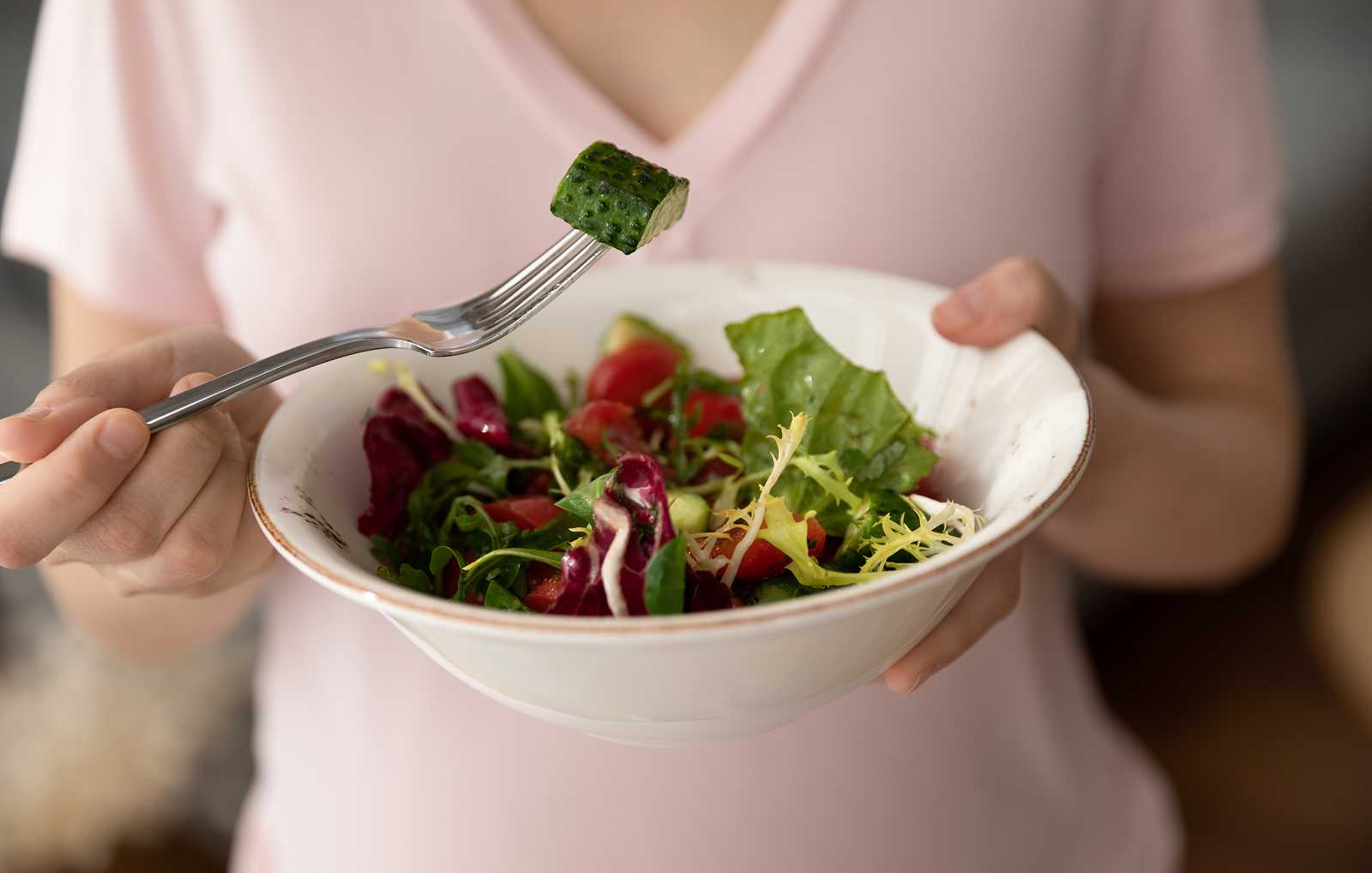A healthy, balanced diet can help slow the progression of chronic kidney disease and reduce the risk of other complications, such as high blood pressure or heart disease.
There is no one-size-fits-all diet for CKD, but some general principles can help most people, especially in the early stages.
What is a kidney-friendly diet?
You may hear the term “A kidney-friendly diet”, which aims to:
- Protect your kidneys from further damage
- Support your overall health
- Help manage other conditions like diabetes, high blood pressure or high cholesterol
Key points to focus on:
- Eat less salt: Too much salt raises blood pressure, which puts extra strain on your kidneys. Try to avoid adding salt at the table. Instead, choose reduced-sodium or no-sodium-added versions of foods, and limit your intake of salty processed foods, such as crisps, ready meals, and takeaway food.
- Choose fresh, unprocessed foods: Cooking from scratch gives you more control over salt, fat and sugar levels. Try to eat more fruits and vegetables, whole grains, and lean protein.
- Watch your protein intake: You still need protein, but too much can be hard on your kidneys. Go for small portions of meat, fish, eggs, or plant-based proteins like lentils or beans.
- Stay hydrated: Most people with early-stage CKD should keep drinking plenty of fluids. Your doctor or nurse will tell you if you need to limit fluids later on.
- Make sure you limit your alcohol intake to no more than 14 units per week. You may be advised to reduce this further depending on your stage of CKD.
- Limit foods high in potassium or phosphate (if advised): Some people with more advanced CKD may be asked to avoid foods high in potassium (like bananas, oranges, and potatoes) or phosphate (like processed cheese or cola).
Only make these changes if your healthcare team tells you to.
Tips for healthier eating with CKD
- Read food labels to spot hidden salt and phosphate additives
- Use herbs, spices, lemon or vinegar to add flavour without salt
- Choose unsweetened drinks and cut back on fizzy drinks
- Eat smaller portions of high-fat or sugary foods
- Avoid herbal or over-the-counter supplements unless approved by your doctor
Should I speak to a dietitian?
Yes, if you have CKD Stage 4 or 5, or have diabetes as well, a dietitian may be able to help you:
- Understand what changes are right for you
- Plan meals that meet your needs and preferences
- Manage other conditions like diabetes at the same time
Ask your healthcare professional or kidney team if a referral is available. You don’t have to do this on your own.
